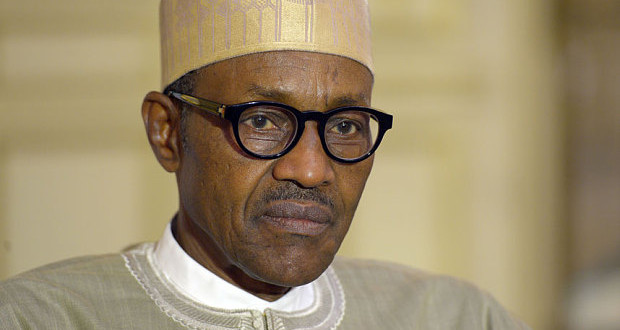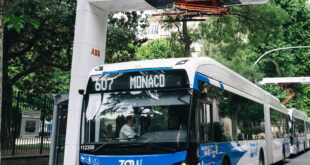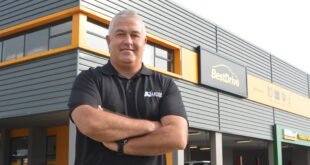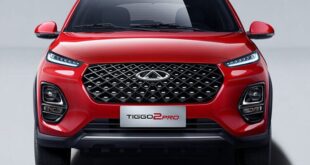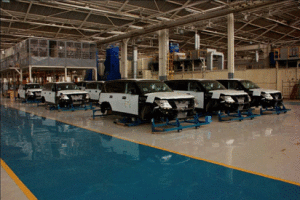
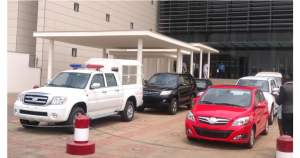
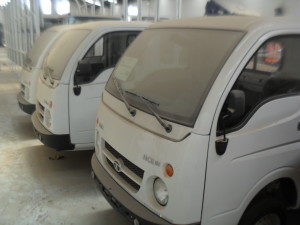
(MOSES AKAIGWE) In the absence of a formal pronouncement by the Muhammadu Buhari administration regarding the Nigerian Automotive Industry Development Plan (NAIDP), hope and the interpretation of the government’s ‘body language’ seem to be the forces that have been driving the implantation of the initiative (often referred to as the automotive policy) since May 29, 2015.
Drawing their optimism from the President’s track record in governance, stakeholders had at the inception of the government one year ago, trusted that the worst that would happen would be a positive review or fine-tuning of the NAIDP, which took effect on July 1, 2014, having been approved by the Federal Executive Council under Dr. Goodluck Jonathan, eight months earlier.
However, one year after, industry observers say that the only definite move so far made by government was the setting up of a revalidation committee comprising representatives of the National Automotive Design and Development Council, Customs and relevant ministries, that toured the existing auto plants with a view to determining the ones that still meet the set standards.
This explains why the Chairman, Nigeria Automotive Manufacturers Association (NAMA), Mr. Tokunbo Aromolaran, believes that much has not been done to achieve the auto policy’s goal of catalysing the local production of vehicles to enhance the industry’s contribution to the country’s GDP.
Does it then mean that the government is unacquainted with huge potentials of the industry? “It would be morally unacceptable to conclude as imagined. Government is a value chain of experts and technocrats who constantly review advice and guide government directions and decisions. So, they are conscious of the huge potential of the automotive industry”, Aromolaran submitted in his assessment.
Yet, in the past one year, no fewer than five new auto plants (and a motorcycle assembly facility) came on stream, even as some existing auto makers, notably Innoson Vehicle Manufacturing Company, Nnewi; Iron Products Industries (IPI); United Vehicle Assembly Ltd (Kia Motors Nigeria), Lagos; VON Automobile, Lagos; PAN Nigeria, Kaduna, and a couple of others, continued to expand their product ranges and make more investments. Remarkably, IPI added Tata assembly line to its plant in Ikotun, Lagos.
For instance, in November, 2015, Coscharis Motors rolled out made-in-Nigeria Ford Ranger, followed months later by the commissioning of FAW trucks plant in Lagos (a partnership between FAW China and Nigeria’s Perfection Motors Company Limited). Kewalram Chanrai Group commenced the assembly of Auman Foton trucks, just as Toyota Nigeria Ltd unveiled its Hiace and Transit Support Services (TSS) gets set to launch the Forland brand of one- to 11 ton-trucks. TSS has capacity to assemble 600 trucks per annum, even as NIPOST has officially adopted the vehicles for its operations nationwide.
The sustained tempo of investments, to the Managing Director of ABC Transport Plc, Mr. Frank Nneji, is an indication of the confidence the industry has in the administration and a reflection of the hope that the government would do what is needed for the policy to yield the expected results, notwithstanding the lack of a definite pronouncement on its position yet.
Concurring, the Chairman of the auto sectoral group of the Manufacturers Association (MAN), Dr. David Obi, said in view of the prevailing circumstances, it would be unfair for expect too much from the government, noting that even the effort to give legal backing to the policy has so far been mired in a mesh of conflicting parochial interests, chief among which is opposition by clearing agents who fear that a ban or higher charges on used vehicles will through them out of business.
“Moreover”, Obi argued, “this is not a talkative government. It is not a propaganda government”.
Nneji, whose Transit Support Services is collaborating with a Chinese auto maker to produce Shacman heavy duty commercial vehicles at ANAMMCO, Enugu, and has just commenced the assembly of Forland trucks, also in Enugu, observed that the economic situation in the country, particularly the foreign exchange crises and the slide in the price of crude oil, must have affected the implementation of the policy.
“But, they have not reversed the policy, and there is nothing to suggest that they don’t support it”, he remarked, stating that the campaign promoting patronage of locally produced goods, including vehicles, the renewal of some auto plants’ manufacturer status, and the setting up of the revalidation committee, were pointers to which way the government is tacitly going with the NAIDP.
The stakeholders, however, reminded the government that as a very vital sector of the economy, the auto industry’s potentials should be fully harnessed for the good of the country, by creating a conducive atmosphere for the original equipment manufacturers’ (OEMs’) investments to thrive.
They called on the government to decisively address the issue of massive importation of used (tokunbo) vehicles as provided for in the policy, and facilitate the introduction of an auto purchase finance scheme that will drive patronage of locally made vehicles.
“Government should ensure an enabling environment for the OEMs, because capital has no conscience; it does not go to where it is not comfortable”, Obi, stressed.
Urging the Buhari administration to encourage the industry to exploit the huge potentials of the sector, Aromolaran added: “Statistics compiled by various government agencies including Nigeria Automotive Manufacturers Association (NAMA) hypothesizes in 2012 that a total of about 400, 000 vehicles (100, 000 new and 300, 000 used) valued at over N550billion were imported into the country. Now imagine if a certain percentage of these imports were locally assembled with accessible local content, would the country not have been over N100 billion richer?”
 ..:: AUTO REPORT AFRICA ::..
..:: AUTO REPORT AFRICA ::..
